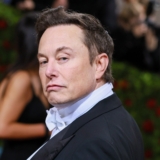Elon Musk’s War of Words: Dissecting the Clash Between Tesla and Reuters
Elon Musk, the enigmatic CEO of Tesla, has taken to social media to hurl accusations at Reuters, one of the world’s largest news agencies. The ire was ignited by a recent Reuters report claiming that it had abandoned plans for a low-cost electric vehicle.
The story, published by Reuters, sent shockwaves through the stock market, causing the shares to plummet. However, He swiftly took to Twitter to dispute the claims, accusing Reuters of “lying.” The tech mogul’s response was characteristic of his unapologetically blunt style, leaving many wondering about the veracity of the original report.
According to him, the car company has not abandoned its plans for a low-cost car, contradicting Reuters’ narrative. The ensuing back-and-forth between him and the news agency has ignited a firestorm of speculation within the tech and financial communities.
Reuters, for its part, stands firmly behind its reporting, asserting that the story was thoroughly researched and fact-checked before publication. The agency’s reputation for journalistic integrity has been called into question by his accusations, prompting a broader discussion about the role of media in shaping public perception, particularly in the volatile world of high-stakes business and finance.
This clash between the EV maker and Reuters underscores the challenges facing modern journalism in an era defined by rapid information dissemination and intense scrutiny. In the age of social media, where a single tweet can reverberate across the globe in seconds, the lines between truth and misinformation can become blurred.
Moreover, the episode highlights the immense influence wielded by figures like Elon Musk, whose words and actions can have profound implications for global markets and public discourse. His unfiltered communication style has endeared him to legions of fans, but it has also made him a lightning rod for controversy, as evidenced by this latest confrontation with Reuters.
As the dust settles on this latest skirmish in the ongoing saga of Elon Musk and Tesla, questions linger about the reliability of information in an age of instant communication and digital disruption. In a world where truth is increasingly subjective and perception is often shaped by competing narratives, distinguishing fact from fiction has never been more challenging. As stakeholders on all sides grapple with the fallout from this clash, one thing remains clear: the intersection of technology, media, and finance is a battleground where only the most resilient and discerning can hope to emerge unscathed.





